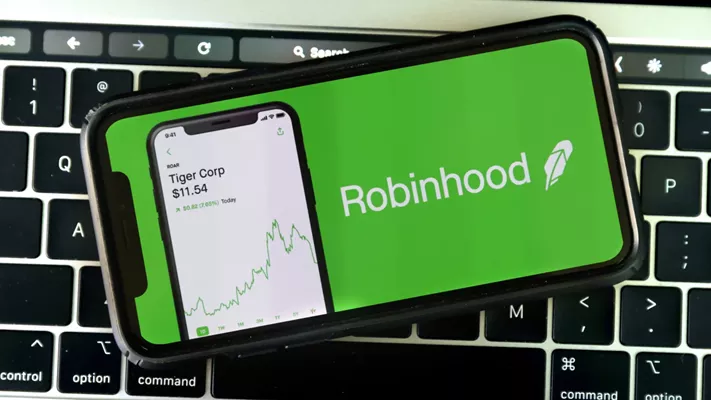Robinhood is a commission-free trading platform that allows users to buy and sell stocks easily. The platform is designed for beginners and experienced traders alike, providing a straightforward way to execute trades. Selling shares on Robinhood means you are closing out your position in a particular stock to realize gains or cut losses. Before selling, it is important to understand the process, order types, and the potential consequences.
Checking Your Portfolio Before Selling
Before you sell shares, you should check your portfolio to see how your investment has performed. You can do this by opening the Robinhood app and navigating to your portfolio section. Here, you will see all the stocks you currently own, their market value, and their percentage change. It is crucial to review your stock’s price trend to determine if it is the right time to sell.
Understanding Order Types
Robinhood provides different order types that you can use when selling shares. Each order type serves a different purpose and affects how your trade is executed. The most common order types are market orders, limit orders, stop-loss orders, and stop-limit orders.
A market order allows you to sell your shares at the current market price. This type of order executes immediately at the best available price. However, the price at which your order is filled may be slightly different from the price displayed due to market fluctuations.
A limit order lets you set a specific price at which you want to sell your shares. If the stock reaches your set price, the order is executed. If the stock does not reach your specified price, the order remains open until it is either filled or canceled.
A stop-loss order is designed to limit losses. You set a stop price, and when the stock price falls to that level, the order turns into a market order and sells at the best available price. This helps protect against sudden drops in stock prices.
A stop-limit order is similar to a stop-loss order but combines features of a limit order. Once the stop price is reached, the order turns into a limit order instead of a market order. This ensures that shares are not sold below a specified price.
Steps to Sell Shares on Robinhood
To sell shares on Robinhood, open the app and log into your account. Navigate to your portfolio and select the stock you wish to sell. Tap on the stock to open its details, then click on the “Trade” button. Choose “Sell” from the available options. Select the number of shares you want to sell and pick your preferred order type. Once you review the details, confirm the order. Your sale will be executed based on the order type you selected.
Understanding Tax Implications
Selling shares on Robinhood may result in capital gains or losses, which can affect your taxes. If you sell shares for more than what you paid, you will have a capital gain. If you sell for less, you will have a capital loss. Capital gains are taxed based on how long you held the stock. Short-term capital gains apply to stocks held for less than a year and are taxed at ordinary income tax rates. Long-term capital gains apply to stocks held for over a year and are taxed at lower rates. Keeping track of your gains and losses will help you prepare for tax season.
Settlement Period After Selling
When you sell shares on Robinhood, the proceeds do not become immediately available. The standard settlement period for stock trades is two business days, known as T+2. After this period, the funds from your sale will be available for withdrawal or reinvestment. If you have a Robinhood Gold account, you may have access to instant deposits and extended trading features.
Common Mistakes to Avoid When Selling Shares
One common mistake is selling in a panic during market downturns. Selling based on fear can lead to losses, especially if the stock rebounds later. It is important to analyze market conditions and your investment strategy before making a decision. Another mistake is not considering order types. Using market orders without understanding price fluctuations can lead to lower-than-expected sale prices. Additionally, failing to account for taxes can result in unexpected financial obligations at the end of the year.
Reinvesting Your Proceeds
After selling shares, you may want to reinvest the proceeds in other stocks or financial instruments. Robinhood offers various investment options, including stocks, ETFs, and cryptocurrencies. Diversifying your portfolio can help manage risk and increase potential returns. Before reinvesting, consider market conditions and conduct research to make informed decisions.
When Is the Best Time to Sell Shares
Timing the market is challenging, but certain factors can help you decide when to sell. If a stock has reached your target price, it may be a good time to take profits. If a company’s fundamentals have changed negatively, selling might be necessary to avoid further losses. Watching for economic trends and market indicators can also provide insights into the best times to sell.
What to Do If You Cannot Sell Shares
If you experience issues selling shares on Robinhood, check if the stock is currently in a trading halt. Some stocks may be temporarily restricted due to market conditions or regulatory rules. Also, ensure that you have a sufficient account balance to cover any fees. If technical issues arise, restarting the app or contacting Robinhood support may resolve the problem.
Conclusion
Selling shares on Robinhood is a simple process, but it requires understanding order types, tax implications, and market conditions. Being aware of potential risks and common mistakes can help you make better trading decisions. Whether selling to take profits, cut losses, or reinvest, planning and strategy are key to successful stock trading.
Related Topics:


